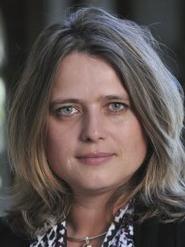
Magdalena Stawkowski, a postdoctoral fellow at the Center for International Security and Cooperation (CISAC), will present a lecture titled “Cold War Nuclear Legacies, Medical Anthropology” on Wednesday, Oct. 7, at 7 p.m., in the Bradford Auditorium, Kirner-Johnson Building. The lecture is sponsored by the Levitt Center Speaker Series and is free and open to the public.
Stawkowski received a Ph.D. in anthropology from the University of Colorado Boulder in 2014. Before joining CISAC, Stawkowski co-organized a student exchange program between Nevada and Kazakhstan, supported by a grant from the Museums and Community Collaborations Abroad Program. That same year, she also began the “Human Survival in a New Nuclear Age” Initiative at the Center to Advance Research and Teaching in the Social Sciences (CARTSS) the Boulder campus. This initiative aims to bring together social science researchers, scientists and members of the greater Boulder community in order to address a broad range of questions associated with the nuclear age.
Stawkowski’s research focuses on the changing visions of militarized and nuclear spaces and how these produce specific forms of social, political and economic exclusion among people who live on the Soviet era Semipalatinsk Nuclear Test Site in Kazakhstan. Her ethnographic research is an account of the local understandings of health, livelihood, and suffering from the perspective of poor marginalized Kazakh people who were most affected by the Soviet military-industrial complex. Her work has been published in the Journal of the History of Biology.
Stawkowski serves on the board of directors of the Karaganda EcoMuseum in Kazakhstan, a Non-Governmental Organization (NGO) that addresses radiation pollution in the Central Asian Republic.
Posted October 5, 2015
